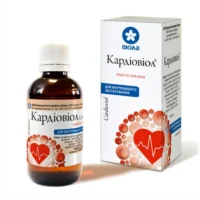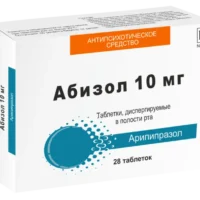Description
Servonex (Donepezil) Coated Tablets 5 mg. №28
Ingredients
Active ingredient: Donepezil hydrochloride 5 mg.
Other ingredients: Microcrystalline cellulose, lactose monohydrate, magnesium stearate, hypromellose, talc, titanium dioxide, and more.
Dosage
Recommended dosage: 5 mg once daily, preferably in the evening before bedtime. Dosage may be increased to 10 mg once daily after 4-6 weeks.
Indications
Servonex (Donepezil) Coated Tablets are indicated for the treatment of mild to moderate Alzheimer’s disease.
Contraindications
- Do not use Servonex (Donepezil) Coated Tablets if:
- You are allergic to donepezil or any other ingredients in the product.
- You have a history of severe liver disease.
- You are pregnant or breastfeeding.
Directions
Swallow the tablet whole with water. Do not crush or chew it. It is recommended to take Servonex (Donepezil) Coated Tablets at the same time each day.
Scientific Evidence
Donepezil, the active ingredient in Servonex tablets, is a cholinesterase inhibitor that works by increasing the levels of acetylcholine in the brain. Acetylcholine is a neurotransmitter that is reduced in individuals with Alzheimer’s disease, leading to cognitive decline.
Clinical trials have shown that donepezil can improve cognitive function, activities of daily living, and behavior in patients with Alzheimer’s disease. A study published in the New England Journal of Medicine demonstrated the efficacy of donepezil in slowing the progression of cognitive decline.
Additional Information
It is important to note that Servonex (Donepezil) Coated Tablets may cause side effects such as nausea, diarrhea, insomnia, and muscle cramps. It is advisable to consult a healthcare professional before starting this medication, especially if you have any underlying medical conditions.
Regular follow-up visits with a healthcare provider are recommended to monitor the effectiveness and tolerability of Servonex tablets.





